Felony Offenses Demystified

Felony offenses carry severe consequences, including lengthy prison sentences and significant fines. Facing felony charges can be intimidating, confusing, and stressful.
However, if you’re currently facing felony charges, you’ll find it helpful to understand the different types of felonies, their classes, and the potential penalties involved.
We’ve put together some information to demystify felony offenses, and shed light on the complexities of felony classes and charges, providing insights to help you navigate this challenging legal territory.
Understanding felony offenses
A felony offense is a serious crime that is punishable by more than one year of imprisonment. They’re distinct from misdemeanors, which carry less severe penalties.
Felony crimes can range from violent crimes, like murder or aggravated assault, to non-violent offenses like white-collar crimes, drug trafficking, and burglary.
The classification of felony offenses varies based on the jurisdiction and the severity of the crime committed.
Felony classes and charges
Felony offenses are categorized into different classes or degrees based on their severity. The classification system varies from state to state, but generally, felonies are divided into different classes, with Class A being the most serious, and Class E or Class 5 (depending on the jurisdiction) being the least severe.
Each class of felony offense corresponds to a range of penalties, with Class A felonies carrying the harshest punishments.
Class A Felonies
These are the most serious felony offenses, often involving crimes like murder, rape, or aggravated assault. Penalties for Class A felonies can include life imprisonment, or even the death penalty in states that allow it.
Class B Felonies
Class B felonies are slightly less severe, but still carry significant penalties. Crimes such as manslaughter and some drug offenses may fall under this category, resulting in several years of imprisonment.
Class C Felonies
This class includes offenses like theft of high-value property, certain drug-related crimes, and some forms of fraud. Penalties typically involve imprisonment for a number of years.
Class D Felonies
Crimes like burglary, grand theft, and drug possession may fall under this class. Class D felonies may result in imprisonment for several years, but the sentences are generally shorter than those for higher classes.
Class E (or Class 5) Felonies
These are the least severe felony offenses. Examples include lower-level drug offenses and some property crimes. Penalties typically involve shorter prison terms or alternative sentencing options.
Penalties for felony offenses
The penalties for felony offenses can be severe and life-altering. In addition to lengthy imprisonment, convicted individuals may face substantial fines, probation, mandatory counseling or treatment, and the loss of certain rights, like voting or firearm ownership.
Additionally, individuals with felony convictions may encounter challenges in obtaining employment, housing, and educational opportunities, as well as social stigma.
Seek legal representation
If you’re facing felony charges, you should make it a priority to find quality legal counsel as soon as possible. These offenses are complex and carry significant consequences that can dramatically impact an individual’s life, and that of their family and loved ones.
Understanding the different types of felonies, their classes, and potential penalties is crucial when facing such charges. If you, or a loved one, are dealing with felony allegations, seeking legal representation from an experienced criminal defense attorney is essential.
At Digby Law Firm, our skilled criminal defense lawyers are well-versed in felony offenses and their varying classes. We’re committed to providing aggressive representation and fighting for the best possible outcome for every one of our clients. Contact us today to schedule a consultation and learn more about how we can assist you with navigating the complexities of felony offenses.
Need Advise?
Our lawyers are experts in Arkansas defense attorney and they’re here to help. If you would like to discuss the particulars of your prossible civil suit with a defense lawyer, contact the Digby Law Firm.
Navigating the Courtroom: Step-By-Step Guide to Criminal Court Proceedings
Facing criminal charges can be pretty intimidating, especially if you’re unfamiliar with the workings of the criminal justice system. Navigating the courtroom alone can be overwhelming when you’re facing potentially life-altering charges. However, developing an...
Criminal Law 101: Top 7 Must-Knows for Navigating the Legal System
Navigating the criminal justice system can be complex and intimidating for anyone, especially someone who’s found themselves involved in a criminal case. Understanding the basics of the criminal justice system is important to help you make the most informed decisions...
The Future of Criminal Justice: Trends and Changes to Watch Out For
As technology continues to evolve, the criminal justice system– just like everything else– has undergone many changes in the past several years. Improvements in technology have major implications for the criminal justice system. In fact, as advancements are...

